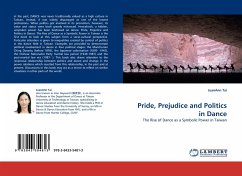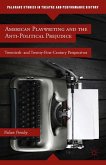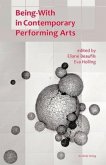In the past, DANCE was never traditionally valued as a high culture in Taiwan, instead, it was widely disparaged as one of the lowest professions. When politics got involved in its promotion, however, its value and status were both greatly enhanced. Henceforth, a hidden, unspoken power has been bestowed on dance. Pride, Prejudice and Politics in Dance: The Rise of Dance as a Symbolic Power in Taiwan is the first book to look at this subject from a socio-cultural perspective. Particular attention is given to inequalities created by control of politics in the dance field in Taiwan. Examples are provided to demonstrate political involvement in dance in four political stages: the Manchurian Ching Dynasty (before 1895), the Japanese colonisation (1895- 1945), the Chinese Nationalist Party martial law period (1949-1987) and the post-martial law era (1987- ). This book also draws attention to the reciprocal relationship between politics and dance and change in the power relations which resulted from this relationship, in the past and at present. Discussions in this book may act as a mirror to reflect on similar situations in other parts of the world.
Bitte wählen Sie Ihr Anliegen aus.
Rechnungen
Retourenschein anfordern
Bestellstatus
Storno








